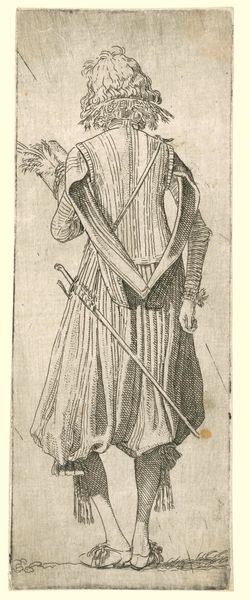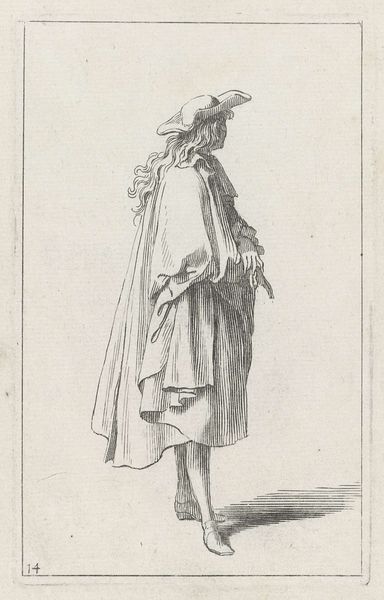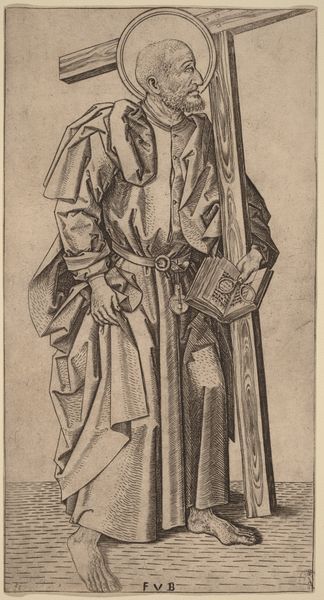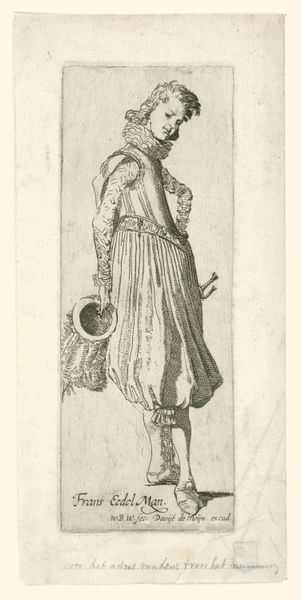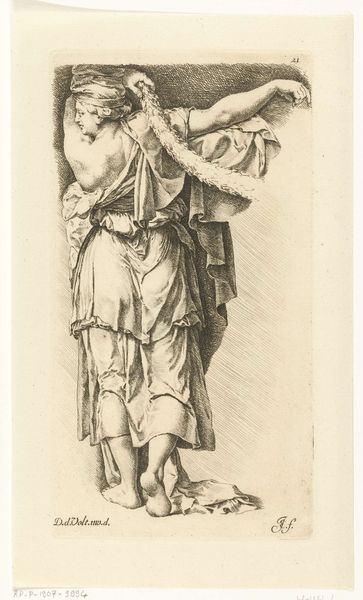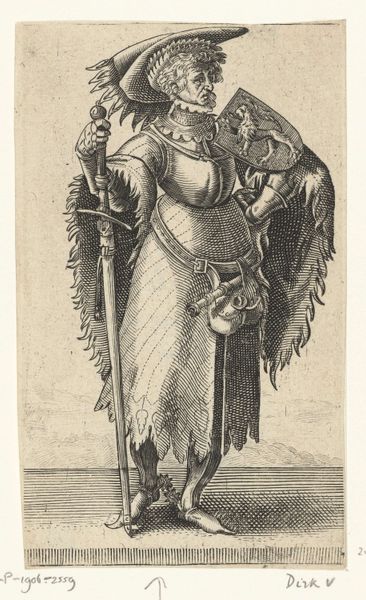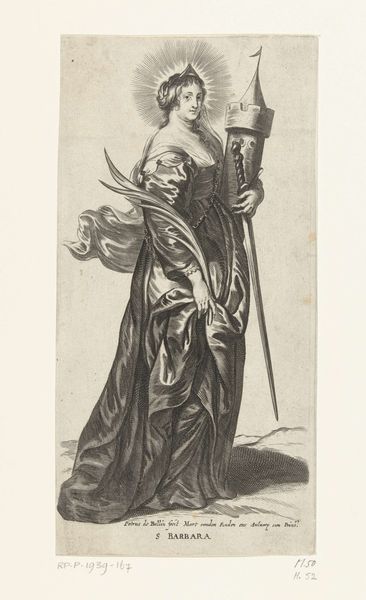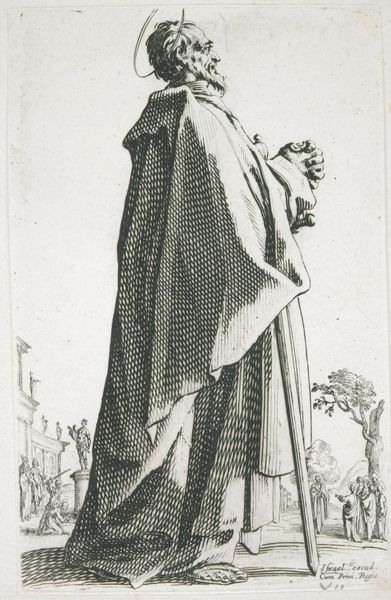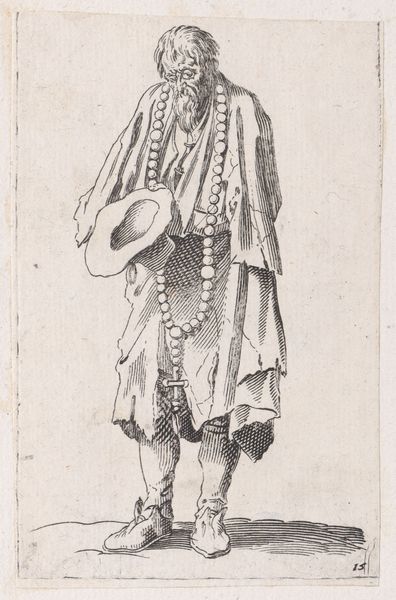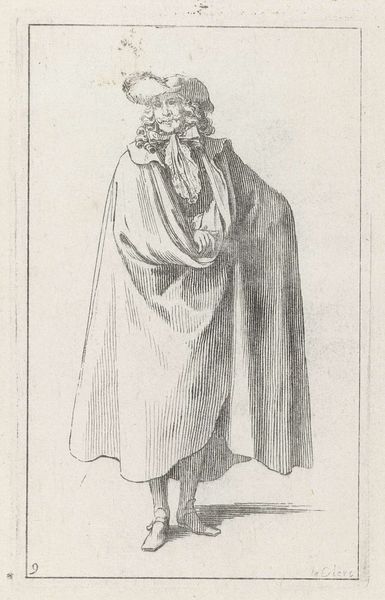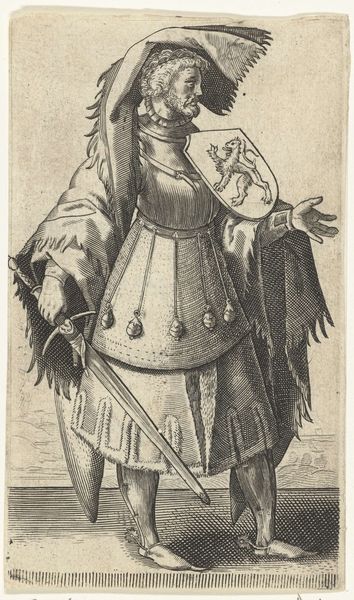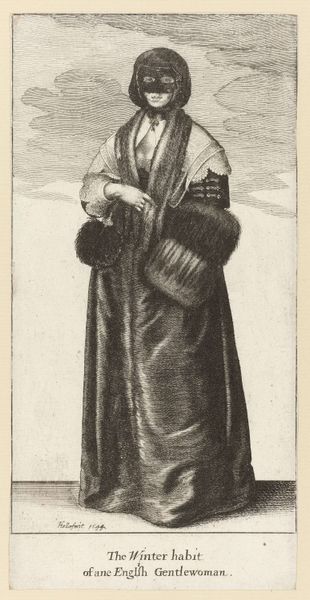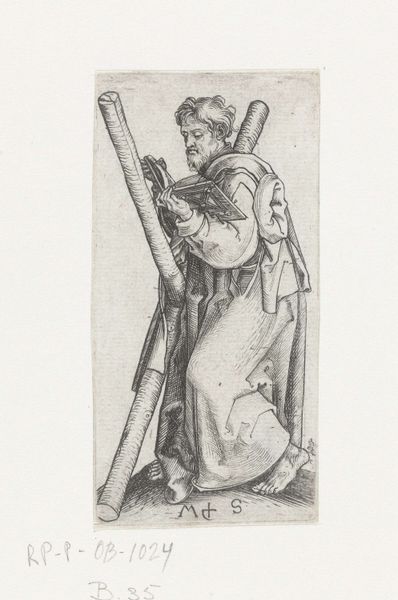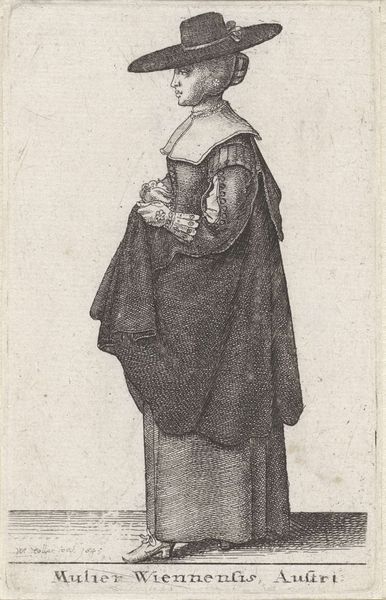
drawing, print, etching
#
portrait
#
drawing
#
baroque
# print
#
etching
#
figuration
#
line
Dimensions: height 191 mm, width 72 mm
Copyright: Rijks Museum: Open Domain
Editor: This is Willem Pietersz. Buytewech's "Italian Nobleman," made in 1615. It's an etching, so a print. I find the figure intriguing - there is almost a casual arrogance in his posture. What statements were made in images like this one? Curator: It's essential to consider the role of prints in the early 17th century. Etchings like this circulated widely. Beyond aesthetics, they acted as crucial social documents. How might this image of an "Italian Nobleman," disseminated in the Netherlands, shape ideas about Italian aristocracy? Editor: I hadn't thought of it that way. I was so focused on the individual portrayed. So this isn't necessarily about accurately depicting a specific nobleman, but perhaps projecting an idea of nobility? Curator: Precisely. Buytewech probably never met this "Italian Nobleman". The image would likely appeal to the rising merchant class in the Dutch Republic. Does the portrayal elevate or subtly mock Italian fashion and perceived cultural decadence? This line of questioning highlights how cultural power is displayed, negotiated, and sometimes challenged through art. The 'originality' of such a subject would become a relevant discourse later in art history, yet that was not the driving force in 1615. What might a contemporary viewer think about how he presents himself, compared with more familiar portraits? Editor: That's fascinating. It’s really changed how I view this work. Thank you! Curator: My pleasure! It's amazing how examining the historical and social context can unlock so many layers of meaning.
Comments
No comments
Be the first to comment and join the conversation on the ultimate creative platform.
